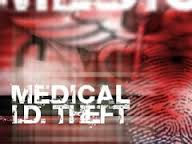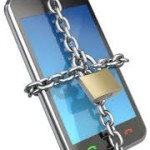Posts Tagged ‘ID theft’
Do You Have An Identity Theft Protection Service This Holiday Season?
 The holidays are a busy time. While you’re running from store to store finding the perfect gifts and shopping online to get the best deals, each transaction puts you at higher risk for identity theft.
The holidays are a busy time. While you’re running from store to store finding the perfect gifts and shopping online to get the best deals, each transaction puts you at higher risk for identity theft.
The holidays are exciting for gift recipients just as much as they are for identity thieves. From everything like leveraging data breaches to using portable scanners to steal your money, identity thieves take advantage of every opportunity. You can prevent identity theft during the holidays (and year-round) to avoid false credit card charges and negative credit reports with an identity theft protection service.
Keep an Eye on Credit Card Statements
You’re likely to use your debit and credit cards a lot more during the holiday season. While you may be busy, don’t forget to take a few minutes out of your day to examine your statements and online activity reports. Set alerts on your accounts for large transactions, too. That way, if a large amount is charged or withdrawn, you’re alerted right away. Contact your financial institution the moment you notice an unauthorized charge.
Don’t Use Your Debit Card
Never use a debit card for purchases online or in-store. Checks and debit cards draw funds directly from your bank account. If an identity thief gets these numbers, they can use them to withdraw cash and even drain your bank accounts. It’s easier to report and reverse fraudulent charges with credit cards than it is with your bank account. And, of course, using an identity theft service is the best way to protect you from identity thieves during the holidays.
Use Credit Monitoring
There are a lot of free credit monitoring services that keep an eye on your balances, credit activity, and credit score. Sites like CreditKarma.com are totally free and allow you to view your credit report monthly. You can set alerts on these types of monitoring sites so that you’re notified the moment a new account, inquiry, or charge is made.
Be a Perceptive Online Shopper
It’s often easier to shop online than in-store, especially if you’re hunting for bargains. But don’t shop with any online retailer. Only use those with SSL certificates and other security measures in place. You can tell if a website has an SSL certificate by viewing URL at the top of your browser. It should begin with HTTPS instead of HTTP. If you can, stick to the big name online retailers like Amazon or large store chains when shopping online.
What if Your Identity is Stolen?
Even the most cautious of consumers can have their identities stolen. When it happens to you, you better be safeguarded by an identity theft protection and recovery service like ID360. The process of recovering your identity can cost over $3,000 and take as many as 600 hours of your time. It’s definitely the last thing you want to deal with around the holidays. Hiring an identity theft protection service allows you to focus on celebrating while a team of former law enforcement professionals work for you to help recover your good name and, of course, your credit.
Learn more about how you can protect your identity or how to sign up for identity theft services by visiting The Identity Advocate today.
Is Your Social Media Profile Putting You at Risk For Identity Theft?
Social media is teeming with opportunities for identity thieves, and most people are unaware they’re even at risk. Consider this: 54 percent of social media profiles have been targeted for identity theft, 15 percent of people have had their account accessed without their permission, and 70 percent have been asked to visit a scam website via private message. What are you doing to prevent identity theft on social media websites?
A study shows that 93 percent of Facebook users share their full name on their social media profile, 60 percent share the full names of family members, and 33 percent share their employer information. Although you are prompted to provide your full name, the city in which you live, your date of birth, and other personal identifying information when you sign-up with a social networking site like Facebook, you don’t have to supply it. However, publishing this information for all the world to see makes it easy for an identity thief to get to work.
 How Social Media Increases Your Chances of Identity Theft
How Social Media Increases Your Chances of Identity Theft
It’s no secret that social media plays an important part in many of our lives. We share status updates, stay in touch with old friends, share family photos, share links to interesting content, in addition to a wide variety of other uses. While this is a great way to stay connected and has made the world a lot smaller, social media profiles and the tidbits of information people share—such as saying when they’re out of town—make them prime targets for identity thieves.
Online games are breeding grounds for social media identity theft as well. These games often offer incentives to players to fill out forms with their personal information. Some have even been known to ask users to fill out a loan application, which requires supplying their Social Security number. With users sharing games among friends, hundreds—if not thousands—of gamers can become victims before they’ve even signed off for the night.
Protecting Yourself From Social Media Identity Theft
Luckily, there are many things you can do (and not do) to prevent identity theft on social media websites. Here are a few easy ways to protect yourself from identity theft while still using social media to stay connected and have fun online:
- Omit personal information: Your personal information is not required to start a social media profile. In fact, you don’t even need your real name. Instead of using your full name, use a nickname or other alias. You also don’t want to provide additional information that help identity thieves, including your date of birth, birthplace or hometown, address, and employer information.
- Use privacy settings: Most social media profiles allow you to select who can see your profile and how much they can see. Set all personal information to “private” and only allow friends to access the information.
- Don’t be friends with everyone: There are a lot of social media users who accept friend requests from anyone who sends them one. For all you know, one of those new “friends” is an identity thief trying to steal your information. Instead, just like in “the real world” you only want to share private information with people you know.
- Don’t tag locations: If you’re out of town or away from home, don’t tag yourself in a location. This tells identity thieves where you are and can increase the chances of your home being broken into while you’re away.
 Unfortunately, identity thieves are waiting to pounce around every online corner. Providing even the most basic information makes you vulnerable to social media identity theft, which can result in huge financial losses that can take years from which to recover.
Unfortunately, identity thieves are waiting to pounce around every online corner. Providing even the most basic information makes you vulnerable to social media identity theft, which can result in huge financial losses that can take years from which to recover.
Get Identity Theft Protection
When it comes to social media identity theft, becoming a victim is a “when” not “if” situation. In addition to taking the precautions discussed above for your social media profile, the best way to prevent identity theft is to sign up with a protection service such as ID Theft Solutions so your identity will be monitored and even recovered when it’s stolen.
The Identity Advocate is another great resource for getting tips to prevent identity theft. From social media identity theft to medical identity theft, The Identity Advocate is dedicated to helping consumers and businesses keep their identities safe. Visit www.TheIdentityAdvocate.com or call 310.831.4400 to learn more about protecting your identity—including your social media profile—from becoming a target.
The Right Prescription to Prevent Medical Identity Theft
 What do you do with your empty prescription bottles? What about all of the medical information you receive, such as your explanation of benefits? Being careless with your personal medical information can be dangerous, and the theft of this priceless data can be deadly.
What do you do with your empty prescription bottles? What about all of the medical information you receive, such as your explanation of benefits? Being careless with your personal medical information can be dangerous, and the theft of this priceless data can be deadly.
Approximately 1.5 million Americans are victims of medical identity theft each year, a crime that costs the nation $41.3 billion annually. Prescription fraud is a growing form of medical identity theft that is not only extremely costly and time-consuming; it can also put your health at risk and even be life-threatening. Unfortunately, medical identity theft isn’t commonly known by many Americans, and often isn’t detected until it’s too late. When we don’t take precautions to prevent prescription fraud and other forms of medical identity theft, we put ourselves in jeopardy of becoming another victim.
What is Prescription Fraud?
Prescription fraud occurs when identity thieves use your personal information to fill prescriptions in your name. They use your medical identity to receive medical treatment at hospitals and doctors’ offices, obtain medications, and access other healthcare services.
Prescription fraud doesn’t just leave you with a huge bill—it can potentially put your health at risk as well. You may find that false information has been added to your personal health record, such as a change in blood type or supposed allergies. Every medical procedure received and prescription filled by the identity thief becomes part of your medical history, which means you may not be able to obtain the life-saving treatment you need in an emergency medical situation.
Detecting and resolving medical identity theft can be difficult as well. You may not discover that you’re a victim until a pharmacy refuses to fill a prescription because it conflicts with another medication you appear to be taking. To make matters worse, fixing errors in your record can be very challenging due to medical privacy laws. Ironically, the same laws that were implemented to protect your privacy and health information are now protecting the medical identity thief. This restricted access to medical records prolongs the duration of the theft, costing you countless time, money, and frustration.
How to Prevent Prescription Fraud
 One of the easiest ways to avoid this type of medical identity theft is simply to be aware of what you throw in the trash. Prescription medication labels carry such sensitive information as your full name and address, the prescribing physician, the type of medication, prescription number, and the pharmacy’s contact information—all of the things a thief needs to perform prescription fraud. Instead of throwing empty prescription bottles in the trash, including the drug information forms, remove the labels and shred them. Other ways to prevent prescription fraud:
One of the easiest ways to avoid this type of medical identity theft is simply to be aware of what you throw in the trash. Prescription medication labels carry such sensitive information as your full name and address, the prescribing physician, the type of medication, prescription number, and the pharmacy’s contact information—all of the things a thief needs to perform prescription fraud. Instead of throwing empty prescription bottles in the trash, including the drug information forms, remove the labels and shred them. Other ways to prevent prescription fraud:
- Review every explanation of benefits (EOB). Examine the charges for medical visits or prescriptions you didn’t receive, and report any suspicious activity immediately.
- Never simply toss medical information in the trash. Dumpster divers can easily access your personal information if you fail to shred the documents.
- Secure medical records. Keep your medical records in a safe place inside your home or in a safe deposit box, away from the prying eyes of visitors. Believe it or not, friends and relatives who have easy access to your personal information are often the culprits.
- Safeguard prescription bottles. Hide or lock-up your medication rather than leaving it in plain sight or in a medicine cabinet. This will prevent anyone from walking off with your prescription medication and, later, your identity.
- Manage written prescription slips. Don’t throw them away or leave them out where they can be stolen. These slips are all an identity thief needs to fill a prescription in your name, leave you without your medication, steal your medical identity, and even put your life in danger.
- Enlist the help of an identity theft protection service such as ID Theft Solutions, which can proactively help prevent medical identity theft and even restore your identity when it’s stolen.
Protecting your identity is an ongoing process that takes vigilance. By taking some common sense precautions, you can avoid the exorbitant costs and health risks of medical identity theft. Get more tips for preventing prescription fraud and other types of medical identity theft by visiting The Identity Advocate at www.TheIdentityAdvocate.com or calling 310.831.4400.
Mobile Identity Theft Threats and Prevention Tips
Mobile identity theft is one of the fastest growing types of identity theft due to the prevalence of mobile devices such as smartphones and tablets. With over one billion smartphones being used globally and research predicting this number will double by 2015, the soaring sales of mobile devices come at a time when identity theft is at an all-time high.
There was one victim of identity theft every three seconds in the U.S. in 2012, totaling 12.6 million consumers—an increase of over one million victims compared to the previous year and accounting for more than $21 billion, according to Javelin Strategy & Research’s 2013 Identity Fraud Report. These numbers are expected to rise, especially as our use of mobile devices continues to increase.
 Preventing Mobile Identity Theft
Preventing Mobile Identity Theft
Whether it’s for email, instant messaging, surfing the web, shopping online, paying bills, or even banking, we store and share an immense amount of personal data on our mobile devices. Unless steps are taken to protect it, this data is vulnerable to identity thieves who want to use it to create fake identities and steal money.
Other than being convenient to use everywhere we go, it’s important to remember that smartphones are no different than desktops or laptop computers when it comes to hackers, viruses, malware, and spyware. Their apps and mobile browsers enable us to store personal information such as passwords, credit card numbers, and bank account data in addition to our contacts and other sensitive information. When this data is breached, however, the resulting identity theft can have severe and long-lasting consequences.
Fortunately, there are many actions you can take to secure your hand-held devices and avoid mobile identity theft. Here are a few tips:
- Create a strong password that is required to unlock your phone and access data. Make sure to set up the phone to automatically lock when it has not been used for a specified period of time.
- Never share sensitive data such as passwords or credit card numbers over an unsecured Wi-Fi connection. Even something as simple as purchasing movie tickets on an iPhone using a public Wi-Fi network can give a nearby hacker the opportunity to steal your data and use it to create a fake identity.
- Carefully review your phone bills for sudden increases in data usage. You also want to be on the lookout for charges from third-party content providers for services and apps you haven’t authorized. These can be signs that your phone has been hacked and puts you at risk for mobile identity theft.
- Keep your operating system and apps up-to-date. These updates are important for keeping your smartphone or tablet current with all of the latest security enhancements.
- Make sure you are shopping on secure websites by verifying that the “s” is in the “https://” in the address bar. Websites using “http://” at the beginning of the website address are unsecure.
Professional Offices and Mobile Identity Theft
When trusted professionals or businesses use mobile devices to share information with clients, the same types of mobile identity theft are possible. Take, for example, healthcare professionals. Over 80 percent of physicians polled in an ABA Health survey revealed that they have used personal mobile devices to access the protected health information of their patients. This puts their patients at risk for mobile medical identity theft even when patients haven’t done anything to put their own identity in jeopardy.
Healthcare professionals can help secure medical records on mobile devices by creating passwords to authenticate access to patient information, and never sharing data over an unsecured Wi-Fi connection.
Mobile Identity Theft Protection Services
In spite of all the safeguards you put in place, hackers will always try to stay one step ahead of you and the available technology. Unfortunately, it’s not a matter of “if” but “when” your identity will be compromised. When it happens to you, don’t be caught without a mobile identity theft prevention plan.
There are a number of free mobile identity theft services, such as AVG, that offer anti-virus plans for mobile devices. Phones can be locked and located remotely, suspicious calls or text messages can be blocked, and widgets can detect questionable website activity.
The best identity theft protection service on the market is ID Theft Solutions. Managed by law enforcement professionals, ID Theft Solutions is the most comprehensive way to ensure your identity is recovered when it is stolen.
You can always count on The Identity Advocate to stay current on all of the latest mobile identity theft threats and solutions to help keep you and your mobile devices safe. Learn more about preventing mobile identity theft by visiting www.TheIdentityAdvocate.com or calling 310.831.4400.
This article was originally published on PInow.com.




